Links to external sources may no longer work as intended. The content may not represent the latest thinking in this area or the Society’s current position on the topic.
The internet of things: Opportunities and threats

Over the past decade the Internet of Things (IoT) has seen a huge growth in interest, due to its extensive applications and potential to rapidly increase productivity and change lifestyles. However, during this time the topic has also become entrenched in discussions about security, economic, ethical and legal issues. This meeting will address the IoT’s disruptive potential, and how the future of technology and society will be shaped.
This conference will describe the state of the art of the field, and highlight key issues which pose a challenge to the translation and adoption of technologies that fall under the umbrella of the IoT.
Attending this event
This open event is intended for participants from industry, academia and government who have an interest in the IoT.
Contact the Industry team for more information.
About the conference series
The conference is part of the Society's Transforming our future conference series, launched to address the major scientific and technical challenges of the next decade and beyond. Each conference will focus on one topic and will seek to cover key issues, including:
- The current state of the key industry sectors involved
- The position of the UK and how it can benefit from the technology
- The future direction of research
- The challenges faced in turning research into commercial success
- The skills base needed to deliver major economic scientific advances
- The wider social and economic impacts
The conferences are a key component of the Society’s five-year Science, Industry and Translation initiative which demonstrates our commitment to reintegrate science and industry at the Society and to promote science and its value by connecting academia, industry and government.
Organisers
Schedule
|
There is much hype around IoT with much discussion about what could be achieved if everything is connected – smart buildings, smart highways, smart and autonomous mines, for example . The reality of IoT is more prosaic. Many technical elements of IoT have been around for at least 20 years – distributed sensing, wireless connectivity, data processing. Indeed, point solutions for many notable IoT applications (process control, automation, for example) have been demonstrated - without any recourse to “IoT technologies”. However, there is a strong sense that the world has reached a tipping point - ubiquitous low-cost sensing, pervasive communications, an ability to store and process huge amounts of real-time data – these are all driving both technology and business change. What is needed, and what will be the big paradigm shift over what has been done in the past, is to provide a standard way of connecting sensors and communicating data, coupled with a philosophy of open and reusable information. This talk will focus on the IoT business proposition: First an open market for sensors, actuators, devices and other systems with standard interfaces. This will open opportunities for a large number of new device developers, reduce costs and build adoption in end-user industries. Second is an open market for data using common platforms and common standards to make data available to many users. This will open huge opportunities for many new companies and individuals to easily develop analytics and application tools. Third, and most important, is the combined use of these systems and data to transform business practice – increasing efficiency, improving safety, managing maintenance and maintain quality of product. There are endless business opportunities to apply IoT to business and industry – and realise much of the “smart” system vision of IoT. 
Professor Hugh Durrant-Whyte FRS, Chief Scientific Adviser, UK Ministry of Defence

Professor Hugh Durrant-Whyte FRS, Chief Scientific Adviser, UK Ministry of DefenceHugh Durrant-Whyte is Chief Scientific Advisor at the UK Ministry of Defence. He is on leave from his position as a Professor and ARC Federation Fellow at the University of Sydney. From 2010-2014, he was CEO of National ICT Australia (NICTA), and from 1995-2010 Director of the ARC Centre of Excellence for Autonomous Systems and of the Australian Centre for Field Robotics (ACFR). He has published over 300 research papers in the area of robotics, autonomous systems, networked data fusion and machine learning. He has graduated over 70 PhD students, and has won numerous awards and prizes for his research work. In his career he has also worked with many major companies, implementing some of the first large-scale autonomous systems in applications including mining, cargo handling and defence. He has co-founded three successful start-up companies in these areas. He is an honorary fellow of Engineers Australia (HonFIEAus), a fellow of the IEEE (FIEEE), fellow of the Australian Academy of Technological Sciences and Engineering (FTSE), fellow of the Australian Academy of Science (FAA), and a fellow of the Royal Society of London (FRS). |
Chair
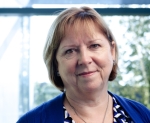
Professor Dame Wendy Hall DBE FREng FRS, University of Southampton/Web Science Trust, UK

Professor Dame Wendy Hall DBE FREng FRS, University of Southampton/Web Science Trust, UK
Dame Wendy Hall DBE FREng FRS is a Professor of Computer Science at the University of Southampton, and is Dean of the Faculty of Physical Sciences and Engineering.
With Sir Tim Berners-Lee and Sir Nigel Shadbolt she co-founded the Web Science Research Initiative in 2006 and she is currently a Director of the Web Science Trust, which has a global mission to support the development of research, education and thought leadership in Web Science.
She became a Dame Commander of the British Empire in the 2009 UK New Year's Honours list, and was elected a Fellow of the Royal Society in June 2009.
She was President of the ACM, was Senior Vice President of the Royal Academy of Engineering, a member of the Prime Minister’s Council for Science and Technology, a founding member of the European Research Council and was President of the BCS. She was Chair of the European Commission’s ISTAG 2010-2012. She is currently a member of the World Economic Forum’s Global Council on Robotics and Smart Devices.
|
This session, on IoT Technology, will feature short presentations from our panel members, followed by a panel discussion open to the audience. 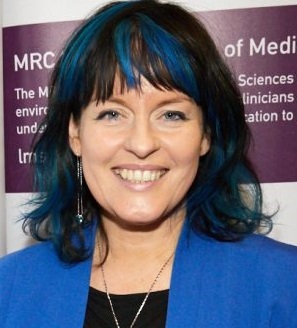
Professor Julie McCann

Professor Julie McCannJulie A. McCann is a Professor in Computer Systems with Imperial College London. Her research centres on decentralized and self-organizing scalable algorithms and protocols for spatial computing e.g., Wireless Sensor systems, Internet of Things, or Cyber-physical systems. She leads the Adaptive Embedded Systems Engineering Research research group, directs the pan-Imperial Smart Connected Futures Centre of excellence. She is the principal investigator in substantive international research collaborations with China (Digital Oceans), with Singapore (Eco-Cities), and co-directed the Intel Collaborative Research Institute for Sustainable Cities. Prof McCann has received significant funding though national and international bodies such as the UK’s Engineering and Physical Sciences Research Council (EPSRC), the North American Electric Reliability Corporation, EU FP7/H2020 funding and Singapore NRF, where she has a sub-lab with I2R and HDB. McCann is an Elected Peer for the EPSRC. She serves on/chairs international conference committees, and is a Fellow of the BCS and Chartered Engineer. 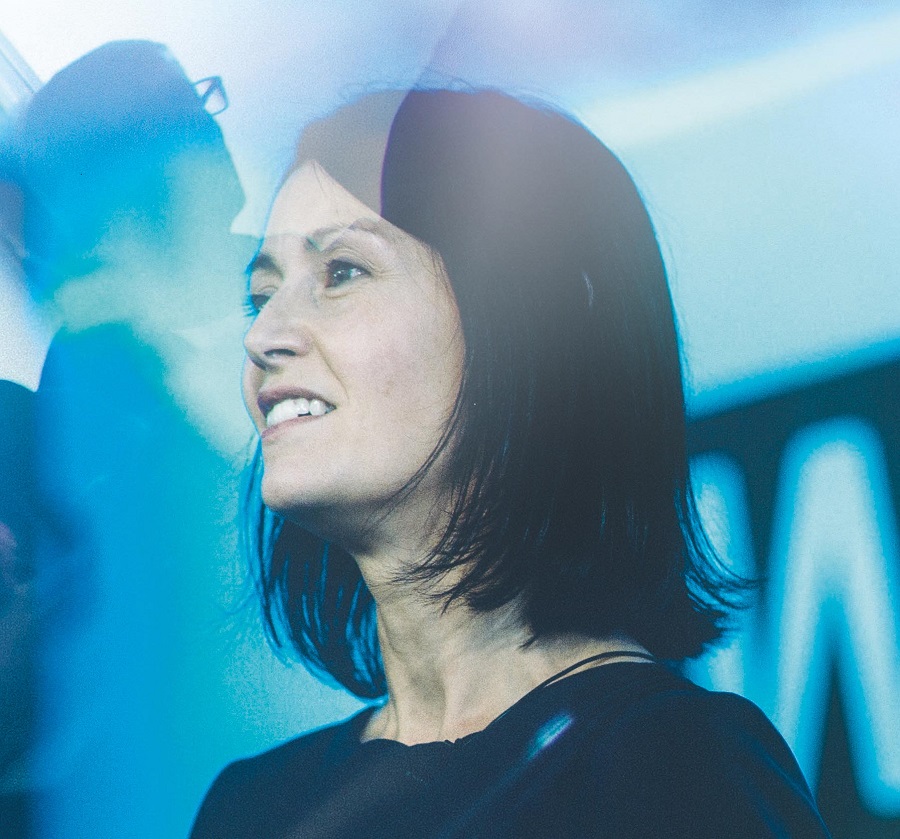
Professor Sadie Creese, Professor of Cybersecurity, University of Oxford

Professor Sadie Creese, Professor of Cybersecurity, University of OxfordSadie Creese is a Professor of Cybersecurity in the Department of Computer Science at the University of Oxford. She is a Fellow of Worcester College, Oxford where she is a member of the Governing Body. She is a Director of the Global Cyber Security Capacity Centre at the Oxford Martin School and a member of the World Economic Forum’s Global Council on Cyber Security. She was the founding Director of Oxford’s Cybersecurity network launched in 2008 and now called CyberSecurity@Oxford. Her current portfolio of cyber-security research includes cybersecurity capacity models for nations and organisations, cyber-harm modelling, situational awareness, visual analytics for cybersecurity, risk propagation logics and communication, threat modelling and detection, network defence and resilience strategies, and privacy. Since 2003 she has been involved in research collaborations with other disciplines which include working with psychologists, sociologists, economists, political scientists, engineers, lawyers, mathematicians, business operations management experts, and criminologists. Her interest in interdisciplinary research spans policy, science and creativity. She supervises and teaches at all levels, including undergraduate Computer Scientists, graduate students at Oxford’s Centre for Doctoral Training in Cybersecurity and on cyber-risk for the MBA and executive programmes at the Saïd Business School. Creese has a background in philosophy, mathematics and computer science and has worked professionally in commercial, government and academic organisations. Prior to joining Oxford in October 2011, Creese was Professor and Director of e-Security at the University of Warwick’s International Digital Laboratory. Creese joined Warwick in 2007 from QinetiQ, where she most recently served as Director of Strategic Programmes for their Trusted Information Management Division. 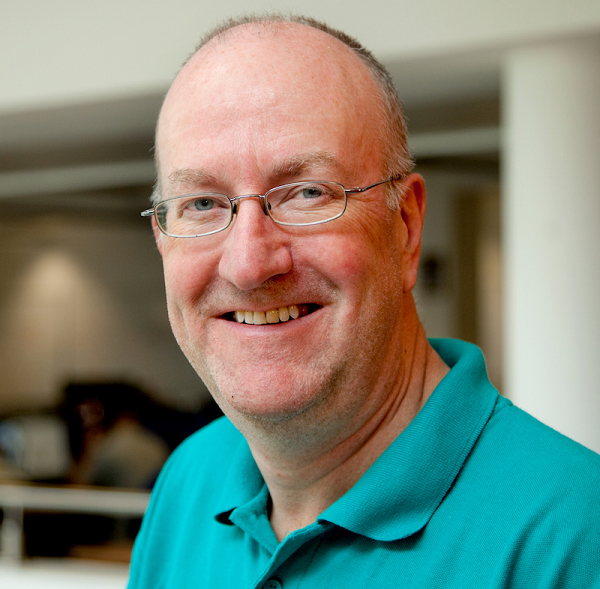
Professor Derek McAuley, Professor of Digital Economy, University of Nottingham

Professor Derek McAuley, Professor of Digital Economy, University of NottinghamDerek McAuley is Professor of Digital Economy and Director of the Horizon Digital Economy Research Institute at the University of Nottingham. His computing research interests span ubiquitous computing, computer architecture, networking, distributed systems and operating systems, while his interdisciplinary interests include issues of ethics, identity, privacy, information policy, legislation and economics within a digital society. 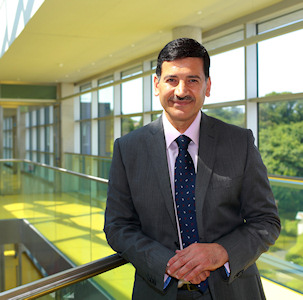
Professor Bashir Al-Hashimi FREng, Professor of Computer Engineering, University of Southampton

Professor Bashir Al-Hashimi FREng, Professor of Computer Engineering, University of SouthamptonBashir M. Al-Hashimi is Professor of Computer Engineering and the Dean of the Faculty of Physical Sciences and Engineering, University of Southampton, where he is holds an ARM Professorship. Prior to becoming an academic, he worked in the UK electronics industry for eight years. He is FREng, FIEEE, FIEE, and FBCS. Professor Al-Hashimi is a well-established national and international leader in the theory and practice of energy-efficient computing, undertaking fundamental and experimental research on hardware-software co-design for energy efficiency. He has received a number of international awards for his research. He published 360 technical papers; five research books, and graduated 35 PhD students. Professor Al-Hashimi is currently the Project Lead of the EPSRC Programme PRiME (Power-Efficient, Reliable, Many-core Embedded systems). In 2013, he led a research consortium funded by EPSRC investigating Battery-Free Electronics, one of the themes of the UK Microelectronics Design Grand Challenges. |
Chair
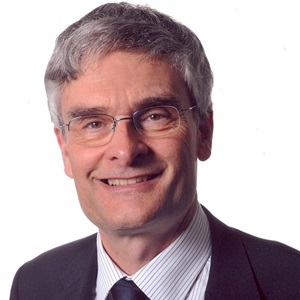
Professor Jeremy Watson CBE FREng, UCL/BRE/Institution of Engineering and Technology

Professor Jeremy Watson CBE FREng, UCL/BRE/Institution of Engineering and Technology
Jeremy Watson is Vice-Dean for Engineering Mission and Professor of Engineering Systems in the Department of Science, Technology, Engineering and Public Policy at UCL. Concurrently, he is Chief Scientist and Engineer at the Building Research Establishment (BRE). Jeremy was previously Arup’s Global Research Director, and Chief Scientific Advisor in the Department of Communities and Local Government (DCLG). He has senior experience of research and technical direction in industry and universities, governing board membership at Innovate UK and EPSRC, plus service with NERC and HEFCE. He has served on two government SAGE panels (Flooding and Pandemics) and a Blackett Review on Cybersecurity of the Internet of Things. Jeremy is Chair of the Institute for Sustainability and of BuildingSMART UK. His specialities include research strategy, systems thinking, innovation processes, and emerging technology identification.
Jeremy is a Chartered Engineer, a Fellow of the Royal Academy of Engineering and a Fellow of the ICE and the IET, where he will be President in 2016. He was awarded a CBE in the 2013 Birthday Honours for services to engineering.
|
This session, on Security issues, will feature short presentations from our panel members, followed by a panel discussion open to the audience. 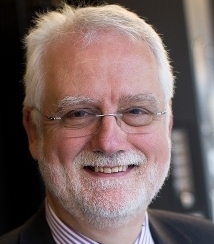
Professor Chris Hankin, Director of the Institute for Security Science and Technology and Professor of Computing Science, Imperial College London

Professor Chris Hankin, Director of the Institute for Security Science and Technology and Professor of Computing Science, Imperial College LondonProfessor Hankin is a Professor of Computing Science at Imperial College London. He is Director of the College’s Institute for Security Science and Technology. His research is in data analytics and cyber security. He leads multidisciplinary projects focussed on developing advanced visual analytics and providing better decision support to defend against cyber attacks. He is Director of the NCSC/EPSRC Research Institute on Trustworthy Industrial Control Systems. He chairs the Academic Resilience and Security Community (Academic RiSC), a network of 30 universities, and serves on the Security and Resilience Growth Partnership oversight group. 
Robert Hayes, Senior Executive, Global Engagement, root9B

Robert Hayes, Senior Executive, Global Engagement, root9BRobert has a portfolio of Non-Executive Director & Strategic Advisory roles, supporting public & private sector organisations through complex change programmes, with a particular focus on cybersecurity. Robert spent 30 years working in senior positions in the UK Government including as Head of the UK National Technical Assistance Centre. This was followed by ten years as a Senior Fellow of the Microsoft Institute for Advanced Technology in Governments, and latterly as Microsoft’s Executive Cybersecurity Advisor for Europe, Middle East & Africa. Robert holds a B.Sc. in Psychology, is a Fellow of the British Computer Society and a Freeman of The City of London. He also holds the rank of Major (V) in the Staff Corps of the British Army. 
Dr Irina Brass, Lecturer in Regulation and Public Policy Department of Science, Technology, Engineering and Public Policy, UCL

Dr Irina Brass, Lecturer in Regulation and Public Policy Department of Science, Technology, Engineering and Public Policy, UCLIrina Brass is a Postdoctoral Research Associate of the EPSRC-funded PETRAS IoT Research Hub, investigating the privacy and cybersecurity challenges of the Internet of Things (IoT) and its implications for standards development, policy and wider governance mechanisms. Irina’s expertise is in the regulation of information technologies and communications systems, with application across several issue areas such as radio frequency management, data protection, cybersecurity governance and risk management in critical infrastructures. Dr Brass has over seven years of teaching experience in regulation, policy-making and international political economy. Dr Brass has been recently appointed Chair of the BSI IoT-1 Technical Committee. |
Chair
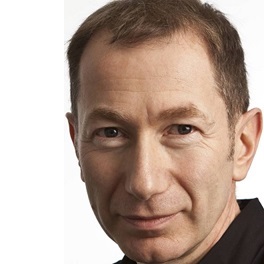
Dr Jeremy Silver, Digital Catapult CEO

Dr Jeremy Silver, Digital Catapult CEO
Dr Jeremy Silver is CEO of the Digital Catapult. He is an author and entrepreneur specialising in digital media, big data, music and the creative industries. He is a non-executive director of a number of early stage companies in music and media. He is a member of the UK Creative Industries Council and was Executive Chairman of Semetric Ltd (acquired by Apple), CEO of Sibelius Software (acquired by Avid) and Worldwide Vice-President of New Media for EMI Group in Los Angeles. He was an advisor to the founders of Shazam. He co-founded Uplister in San Francisco, which was the world’s first playlist-sharing music service. He is the author of an acclaimed book Digital Medieval: the first twenty years of music on the web – and the next twenty. His discussion paper Blockchain or Chaingang was published by CREATe at the University of Glasgow, where he is an Industry Fellow.
|
This session, on Business and economic issues, will feature short presentations from our panel members, followed by a panel discussion open to the audience. 
Caroline Gorski, Head of IoT, Digital Catapult

Caroline Gorski, Head of IoT, Digital CatapultCaroline is a commercial leader with a background in strategy consulting, market development and commercial decision-making at FTSE 100 board-level. She is Head of Internet of Things (IoT) at the Digital Catapult. The Digital Catapult works to accelerate UK competitiveness in the digital economy. As Head of IoT Caroline and her team develop and drive innovation in the IoT. She is responsible for overseeing the IoTUK programme. Previously, Caroline was Head of Business Development - IoT for Telefonica UK and Managing Partner for Telefonica UK’s Retail and Leisure practice, delivering customer engagement technologies into businesses in the UK. She has worked as a Strategy Consultant with clients in the Leisure, Financial Services, Media and FMCG sectors, helping develop products and strategies that embrace digital possibilities. She began her career in technology consulting at Forrester Research, working with Global 2500 clients to help them to use technology to transform their businesses. 
Elizabeth Linder, Founder and CEO, The Conversational Century

Elizabeth Linder, Founder and CEO, The Conversational CenturyElizabeth advises leaders at the senior-most government and corporate levels in over forty countries on how to understand their place as role models in the old and new media landscape, harnessing the ability to have conversations at scale. Elizabeth founded The Conversational Century in 2016 to redefine conversation at the global leadership level against the backdrop of her background at Facebook. In 2017 she coined the term “primary source revolution” to describe changing patterns in the spread of information. Elizabeth is a Senior Consulting Fellow at Chatham House, where she leads the Connectivity Initiative, and is a regular commentator on BBC, Sky, Newsweek, and CNN. After graduating from Princeton, Elizabeth started her career at Google. In 2008 Facebook recruited Elizabeth to join its original offices. In 2011 Elizabeth founded Facebook’s Politics & Government division for Europe, the Middle East and Africa, and moved to London in 2011. Elizabeth is frequently referred to as “The Facebook Lady.” 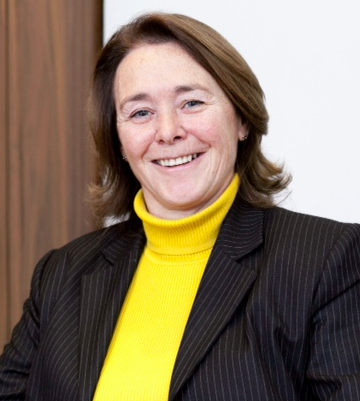
Charlie McMurdie, Former Head of Law Enforcement National Cyber Capability, Met Police

Charlie McMurdie, Former Head of Law Enforcement National Cyber Capability, Met PoliceCharlie McMurdie – Former head of the UK national police cyber crime unit and senior cyber crime advisor to PwC Charlie served for 32 years in Law enforcement where she established and led a world-class national cyber crime capability for the United Kingdom. She led the cyber crime and cyber terrorism response for numerous international investigations including delivering the 2012 Olympics cyber response whilst delivering over £1.8 billion harm prevention. She is an acknowledged cyber crime and security expert and internationally acclaimed authority and advisor on issues within government and industry in relation to the Internet, computing fraud and security sectors. As the senior cyber crime advisor to PwC Charlie has led on a range of global strategic and operational cyber security programmes as well as leading the cyber crime response within Breach Aid, PwC’s critical incident multidiscipline response team. 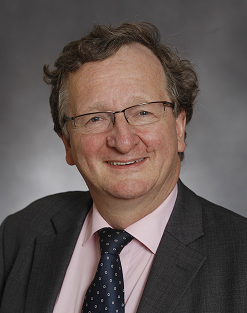
Dr Mike Short CBE FREng, Vice President, Telefonica

Dr Mike Short CBE FREng, Vice President, TelefonicaDr Short has held positions in Electronics and telecommunications for 40 years. He has had experience with 5 generations of Mobile technology and mobile data services including the establishment of a new 5G innovation centre based at Surrey University. He has been involved in mobile licence bids, network launches and in recent years Innovation for business development in areas as diverse as Mobile TV, connected cars, smart metering, smart cities and emergency services. He is a former elected Chairman of the global GSM Association and UK Mobile Data Association, and a former President of the Institution of Engineering and Technology (IET - 2011/2012). |
Chair
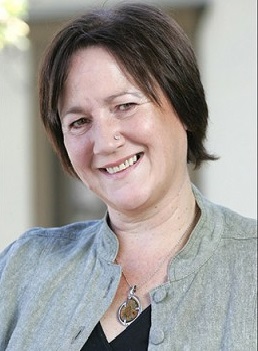
Dr Patricia Lewis, Chatham House

Dr Patricia Lewis, Chatham House
Dr Patricia M Lewis is the Research Director, International Security at Chatham House. Her former posts include Deputy Director and Scientist-in-Residence at the Center for Non-proliferation Studies at the Monterey Institute of International Studies; Director of UNIDIR; and Director of VERTIC in London.
Dr Lewis served on the 2004-6 WMD Commission chaired by Dr Hans Blix; the 2010-2011 Advisory Panel on Future Priorities of the OPCW chaired by Ambassador Rolf Ekeus; and was an adviser to the 2008-10 International Commission on Nuclear Non-proliferation and Disarmament (ICNND) chaired by Gareth Evans and Yoriko Kawaguchi.
She holds a BSc (Hons) in physics from Manchester University and a PhD in nuclear physics from the Birmingham University. She is a dual national of the UK and Ireland.
Dr Lewis is the recipient of the American Physical Society’s 2009 Joseph A Burton Forum Award recognizing 'outstanding contributions to the public understanding or resolution of issues involving the interface of physics and society'.
|
This session, on Social science, ethical, legal and global issues, will feature short presentations from our panel members, followed by a panel discussion open to the audience. 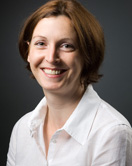
Maria Farrell, Internet policy consultant and writer

Maria Farrell, Internet policy consultant and writerMaria Farrell is an Irish writer and consultant, based in London. From 2014 – 2016, she was a Senior Consultant at InterConnect Communications, delivering consulting and training on Internet governance and cyber-security policy. Previously, Maria was deputy head of corporate affairs and policy officer at ICANN, based in Brussels, Los Angeles and Washington D.C. Maria led communications and a government advisory project at infoDev, the World Bank/IFC program on technology and development. She was Internet policy analyst at the International Chamber of Commerce, Paris, the UK's Confederation of British Industry and The Law Society of England and Wales. A graduate of University College Dublin, the Dublin Institute of Technology and the London School of Economics, Maria teaches politics and policy on Oxford University’s doctoral programme in cyber security. Maria is a Board Director of the Open Rights Group, has written for The Guardian and Slate, and blogs at www.crookedtimber.org. Twitter: @mariafarrell 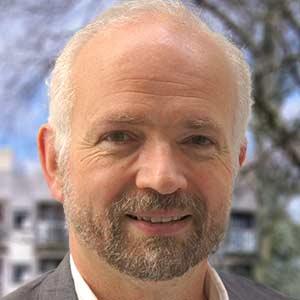
Professor David De Roure, Oxford e-Research Centre, University of Oxford, UK

Professor David De Roure, Oxford e-Research Centre, University of Oxford, UKFocused on advancing digital scholarship, David works closely with multiple disciplines and has extensive experience in hypertext, Web Science, Linked Data, and Internet of Things. He is a speaker and writer on digital scholarship and the future of scholarly communications. David has strategic responsibility within The Oxford Research Centre in the Humanities (TORCH). He is a member of Cyber Security Oxford, and an Oxford Martin Senior Fellow. He was previously Director of the Oxford e-Research Centre, and Professor of Computer Science at University of Southampton. He was involved in the UK e-Science programme; serving as the UK National Strategic Director for Digital Social Research for the UK Economic and Social Research Council, and Strategic Advisor for emerging forms of data and real time analytics. He is a Fellow of the British Computer Society and the Institute of Mathematics and its Applications, visiting professor at Goldsmiths, University of London, and Supernumerary Fellow of Wolfson College. 
Emily Taylor, Chief Executive Officer, Oxford Information Labs

Emily Taylor, Chief Executive Officer, Oxford Information LabsEmily Taylor is an Associate Fellow of Chatham House and is Editor of the Journal of Cyber Policy. She is CEO of Oxford Information Labs. Emily’s research publications include The Internet in the Gulf; ICANN: Bridging the Trust Gap and Privatization of Human Rights; annual World Report on Internationalized Domain Names (lead author); studies for ICANN on the Domain Name Marketplace in Latin America and Caribbean and Middle East. She is Co-Chair of ICANN’s Security and Stability Review Team. Previous roles have included Chair of ICANN WHOIS Review Team, Internet Governance Forum Multistakeholder Advisory Group, Global Commission on Internet Governance, Director of Legal and Policy for Nominet. She has written for the Guardian, Ars Technica, Wired and the Slate, and has appeared on the BBC Now Show. 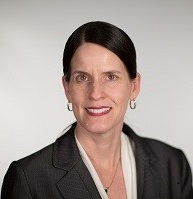
Professor Laura DeNardis, Professor at American University Washington D.C., Author and scholar of internet governance and infrastructure

Professor Laura DeNardis, Professor at American University Washington D.C., Author and scholar of internet governance and infrastructureLaura DeNardis, M.Eng, Ph.D., is a Professor of Internet architecture and governance and Faculty Director of the Internet Governance Lab at American University in Washington, D.C. With a background in information engineering and a doctorate in Science and Technology Studies, her books include The Global War for Internet Governance (Yale University Press 2014), Protocol Politics: The Globalization of Internet Governance (MIT Press 2009), and others. Dr. DeNardis served as the Director of Research for the Global Commission on Internet Governance and is an Adjunct Senior Research Scholar at Columbia University’s School of International and Public Affairs. She previously served as the Executive Director of the Yale Information Society Project from 2008-2011. Dr. DeNardis holds an AB in Engineering Science from Dartmouth College, a Master of Engineering degree from Cornell University, a PhD in Science and Technology Studies from Virginia Tech, and was awarded a postdoctoral fellowship from the Information Society Project at Yale Law School. |
|
The internet of things from the perspective of cybersecurity
The Internet of Things (IoT) is an emerging phenomenon that merges cyber and physical, brings together cyber infrastructure with the physical world. The IoT is believed to create new opportunities for economic growth and development, make the use of ICTs "smart(er)", improve the lives of users. According to a European Commission study the market value of the IoT in the EU is expected to exceed one trillion euros in 2020. Today it is impossible to predict all opportunities and challenges of the IoT. But it can be predicted that immense enlargement of activities in cyberspace, accompanied by a vast increase of actors in the field, will have a huge impact on all aspects of cybersecurity. In my presentation I would address the IoT from the cybersecurity perspective, more specifically the following questions: -IoT and international security, including reflections of the discussions within the 2016-2017 UN GGE -IoT and the security and privacy of individual stakeholders, including the role of private sector The global effects of the IoT were discussed in the 2016-2017 GGE (Group of Governmental Experts on Developments in the Field of Information and Telecommunications in the Context of International Security.1 The GGE addressed the issue under the section „Existing and emerging threats“. The group addressed the IoT in the context of the fast pace of technological innovation combined with rapid and widespread technology adoption and acknowledged that the IoT could be exploited with implications for international peace and security. At the same time also individual cyber threats will become more serious concerns for the IoT. Even when users take precautions to secure their information, there are factors that are beyond their control. Privacy risks include inter alia insecure data transfer, data sharing with third parties, application vulnerabilities. 1 GGE could not produce a consensus report that it was mandated to do pursuant to the UNGA resolution 70/237, but it had good discussions and made progress under almost all questions of the mandate, with the exception of applicability of international law to the use of ICTs. Therefore, the progress made by the GGE in other areas should not be ignored but rather addressed in different discussions. 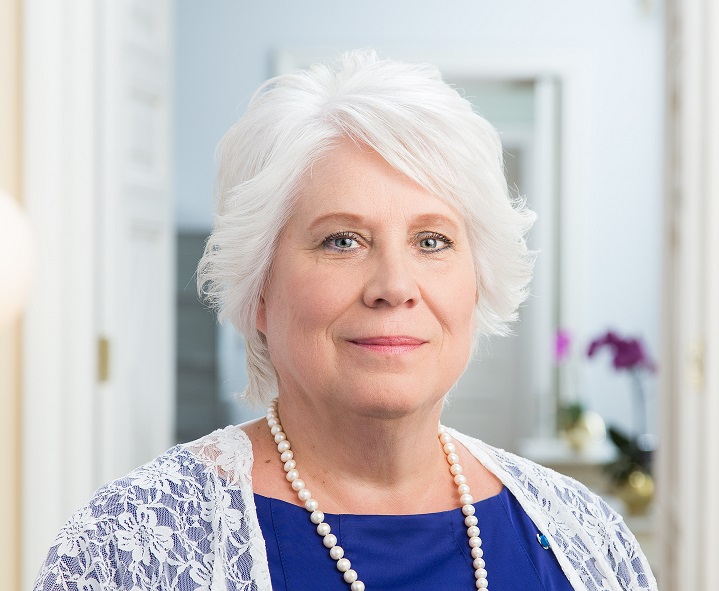
Marina Kaljurand, Chair of Cybersecurity Commission, Dutch Government

Marina Kaljurand, Chair of Cybersecurity Commission, Dutch GovernmentMarina Kaljurand served as Estonian Foreign Minister from 07/2015 – 10/2016, and has been Chair of the Global Commission on the Stability of Cyberspace since 03/2017. She began her career at the Ministry of Foreign Affairs in 1991 and was Undersecretary for: Legal and Consular Affairs (Legal Adviser); Trade and Development Cooperation; and Political Affairs. She served as Ambassador of Estonia to the State of Israel, the Russian Federation, Kazakhstan, Mexico, Canada and the USA. Kaljurand was a member of Estonian Governmental delegation in negotiations with Russia Federation on withdrawal of Russian troops from Estonia and Border Agreements between Estonia and Russia. Kaljurand headed the legal working group at the Estonian accession negotiations to the EU and was Chief Negotiator in Estonian accession negotiations to the OECD. Marina served twice as the Estonian National Expert at the UN Group of Governmental Experts on Developments in the Field of Information and Telecommunications in the Context of International Security (GGE), in 2014-2015 and in 2016-2017. Kaljurand graduated cum laude from the Tartu University (1986, LLM). She has a professional diploma from the Estonian School of Diplomacy (1992) and MA from the Fletcher School of Law and Diplomacy, Tufts University (F95). |
